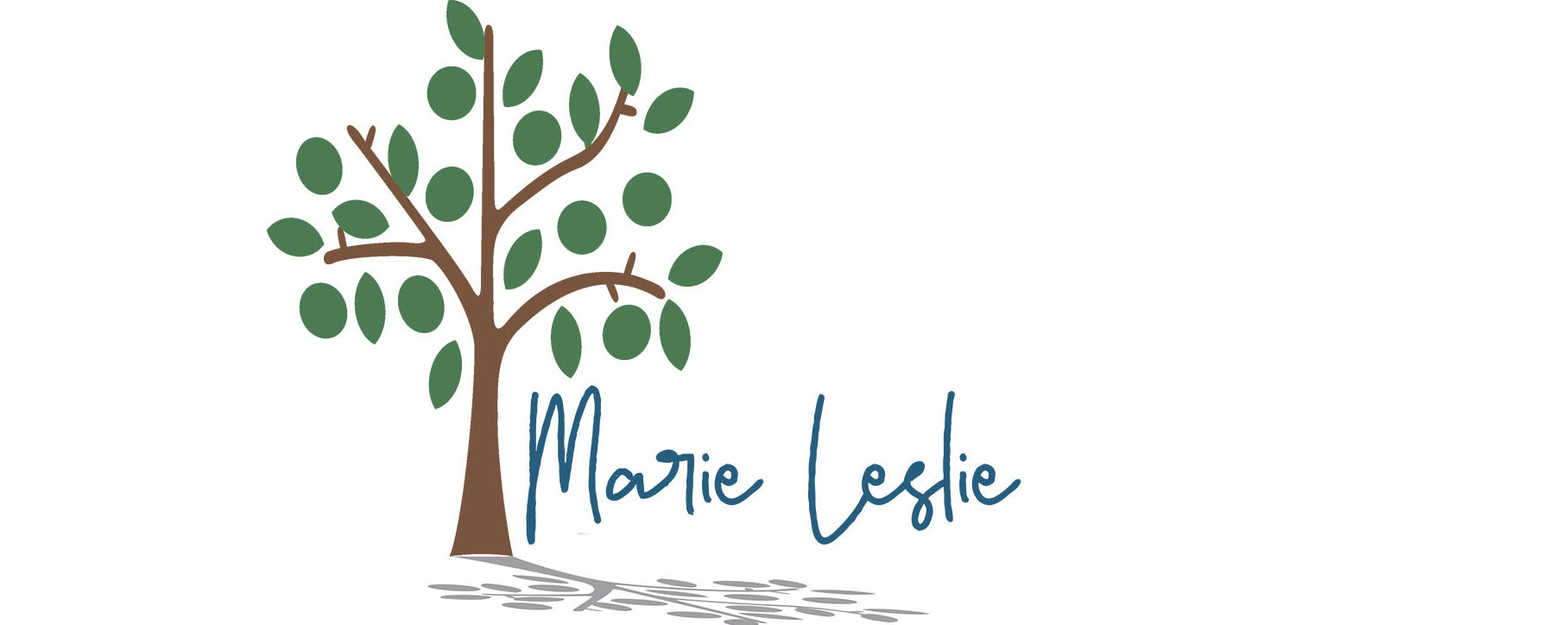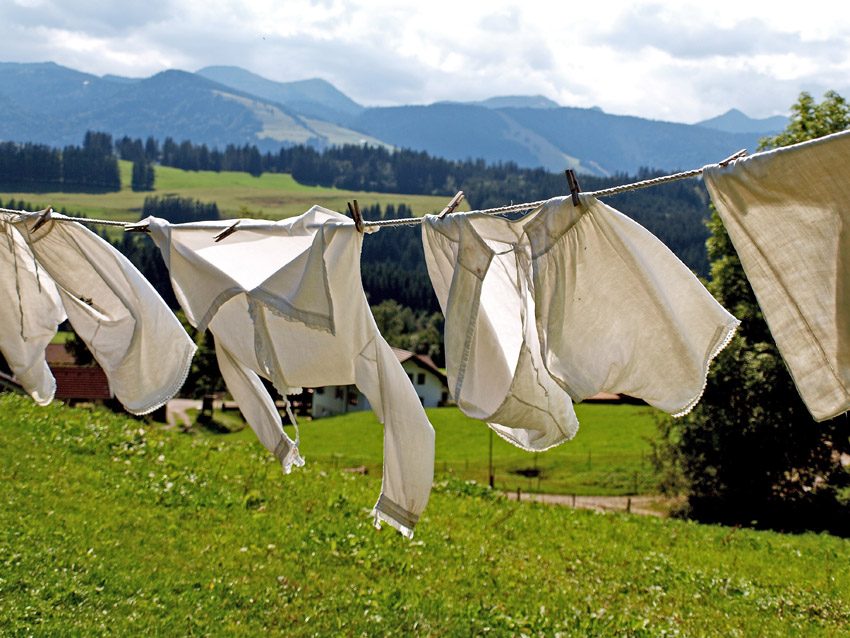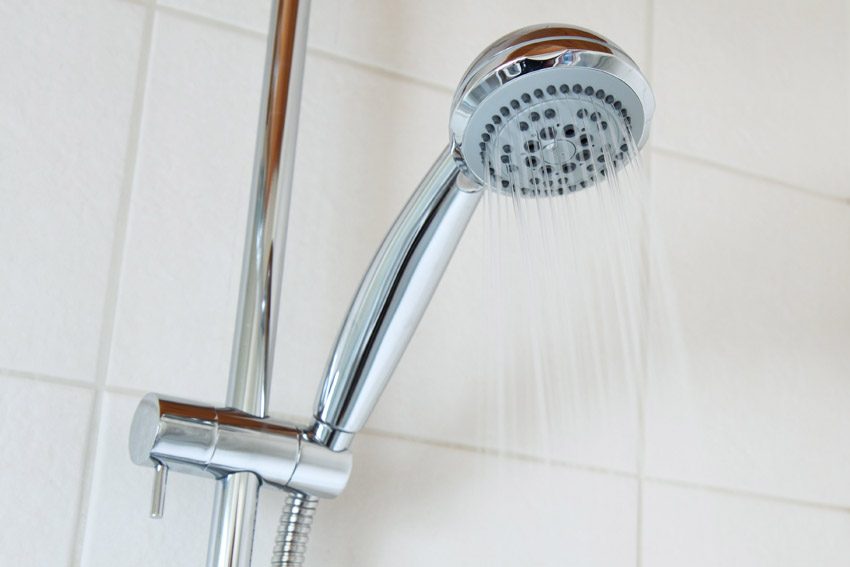Save Time & Money with these 20 Smart Ways to Use Vinegar
When I was growing up, Saturday was always chore day at our house. We spent pretty much every Saturday morning cleaning bathrooms and bedrooms, changing sheets and mopping floors. And pretty much every week about halfway through, I would start feeling ill, sometimes even light-headed and my lungs would get tight. My sisters thought I was trying to get out of work, and I’m not sure my mom knew what to make of it. It wasn’t until I moved into my first house with my husband and got even sicker that I learned that the household cleaners we used aggravated my asthma and allergies.
Since I do like a clean house, and a housekeeper was out of the budget for this poor newlywed college student, I had to do some research and figure out what I could use that wouldn’t make me ill. Just about every brand of cleaner on the market later, a woman from my church taught me some of the smart ways to use vinegar for cleaning.
Ever since, I have researched and studied and experimented with new ways to use vinegar to keep my home clean and healthy. And besides the health benefits, using vinegar instead of commercial cleaners was also healthy for my budget. Vinegar is about $2/gallon and I most often use it diluted, so a gallon goes a long way and costs me about ¼ or even less than buying commercial chemical cleaners.
Vinegar does have a strong odor, so if you’re sensitive to the smell of vinegar, keep your work area ventilated. Whenever I use vinegar in small spaces, like the bathroom, I make sure to run the exhaust fan. Have you tried replacing some of your cleaners with vinegar? I’d love to hear your feedback in the comments section at the end of this article.
In the Kitchen
- Adding vinegar to your meat marinade tenderizes the meat and helps prevent bacteria. Create a marinade by combining ¼ cup of any type of vinegar with your choice of herbs, spices and other ingredients for each two pounds of meat. Marinate from 30 minutes to 24 hours.
- Deep clean kitchen appliances, remove residue and build up in your dishwasher, coffee maker, tea kettle, etc., by adding one cup of white vinegar (two for the dishwasher) once a month and letting it run empty through a complete cycle.
- Prevent eggs from cracking when hard-boiling by adding two tablespoons of white vinegar to the water. The shells will stay whole and will peel more easily.
- Remove grease stains and build up from your stove by spraying with a 50-50 solution of white vinegar and water. Let soak for a couple of minutes to loosen the gunk and wipe clean with a damp cleaning rag. For heavy build up, you may need to repeat. Then clean regularly with the vinegar water solution to keep your stove looking new.
- Remove hard water stains and other stains from dishes by scrubbing with a paste made from equal parts vinegar and salt.
- Remove more dirt and residue than water alone by washing fruit and veggies with a solution of ¼ cup white vinegar to one quart of water. Rinse thoroughly with plain water.
- Retard mold growth on blocks of cheese by lightly spraying cheeses with a mixture of ¼ cup white vinegar to 1 quart water and then wrapping tightly with plastic wrap or storing in an airtight container.
- To clean and deodorize your microwave fill a small microwave-safe glass bowl with equal parts white vinegar and water and microwave on high for three-four minutes. At the end of the time, remove the bowl and easily wipe down the microwave with a damp cloth.
- To clean and disinfect wood cutting boards or butcher blocks, wipe with full-strength white vinegar after each use. For deep cleaning and deodorizing, sprinkle surface with baking soda and then spray full-strength white vinegar. Let it sit until the foaming stops and then rinse with a clean damp cloth.
- To remove kitchen odors, add ½ cup vinegar to 1 cup water in a pot. Bring to a boil and turn it down to simmer for 15-20 minutes. The odors will be gone without any chemical sprays.
In the Laundry
- Instead of using fabric softener, add 1 cup white vinegar to your washing machine’s fabric softener dispenser – or the final rinse. It reduces static and helps remove detergent residue, leaving your clothes feeling and smelling fresher.
- To brighten whites and remove the yellowing, soak clothing overnight in a solution of 1 cup vinegar to one gallon warm water. Wash according to instructions.
- To minimize or remove perspiration and antiperspirant stains from clothing, spray with white vinegar and sponge out stains. For stubborn stains make a paste of salt and vinegar and scrub it into the fabric. Let set for 20 minutes or so and then wash as usual.
Around the House
- Clean vinyl and ceramic tile floors with 1 cup white vinegar in one gallon of hot water. Cuts through the gunk, leaves no residue and no more expensive floor cleaners. Do not use on wood or laminate floors.
- De-ice your windows. Help prevent house or car windows from icing over by spraying them with a solution of 3 parts white vinegar and one part water.
- Easily remove old wallpaper. Spray equal parts white vinegar and water liberally on the wallpaper. Let it soak for a few minutes and then use a wallpaper scraper to remove the wallpaper.
- Fill a spray bottle with ½ white vinegar and ½ water and use it in place of most all-purpose spray cleaners and window cleaner. Do not use on granite or natural stone counters or tile. You can safely use a higher concentration of vinegar; however, it can irritate your eyes and nose.
- For a non-toxic way to help eliminate and prevent gunk build up in your sink and shower drains, pour one cup of baking soda into the drain, followed by 1 cup of white vinegar. Wait until the foaming subsides and then pour a large pot of boiling water down the drain.
- Remove lime and mineral build-up from faucets and fixtures. Make a paste of 2 tablespoons salt to one teaspoon vinegar. Apply to fixtures and scrub well with a damp cloth. Rinse thoroughly when done and dry with a clean towel. If you can’t remove the showerhead or faucet, pour vinegar into a plastic bag and attach to faucet with a tie.
- Remove mildew from patio furniture by cleaning with a spray-bottle containing full-strength white vinegar. The mildew will wipe off easily and the vinegar will retard and slow future mildew growth.
- Remove pet odors. Whether cleaning the litter box or waste tray in a bird or rodent cage, spray the box or tray with 50-50 white vinegar and water before wiping down to eliminate odors and kill germs and bacteria.
- Remove price tags or stickers from walls, wood or metal furniture, or glass by saturating the edges of the sticker with full-strength vinegar. Let it sit for a few minutes and then carefully scrape it off with an expired credit card. Remove any remaining residue by saturating with white vinegar, waiting a few minutes and wiping it away with a clean cloth.
And a Bonus:
Stop sunburns in their tracks. Before stepping into the shower, liberally sponge sunburned areas with white vinegar—it will sting. Allow to soak in for a minute or two and then shower as usual. The vinegar will reduce the redness and the pain of the sunburn.











Marie,
My Mom would use white vinegar to rinse my hair after shampooing. It made it super shiny!
Although I don’t recommend it unless you want to smell like a pickle. Yeah, one summer day it was so hot out that my head started to sweat in class. Out of nowhere, Little Janie Hunter screams, PICKLES! IT SMELLS LIKE PICKLES. The entire class took a deep sniff in the air and then fingers started to point at me. He! It’s KEITH! I was knows as pickles for a very long time. Mom never tried that one again! PICKLES!
I used salt and white vinegar to polish brass. My old trumpets clear coat finish had worn off from all the use. I had to polish my trumpet it at least once a week for school and when we went out for band competitions.
Why salt and white vinegar? Well, the fumes from regular brass polish made me sick to my stomach and never truly came off completely. Also, salt and vinegar worked much faster and never left a residue. Problems solved.